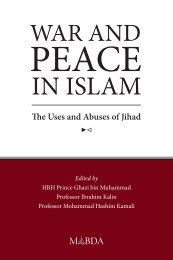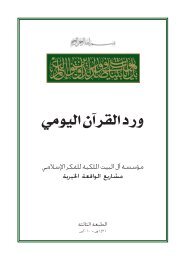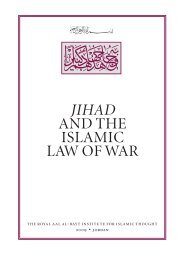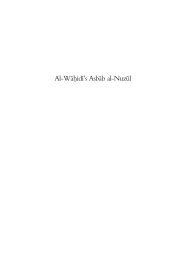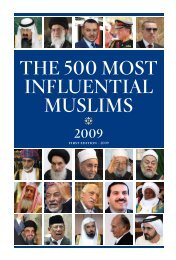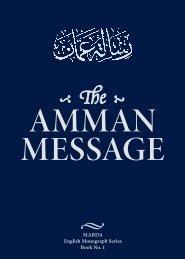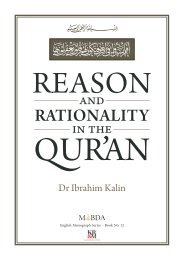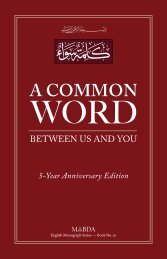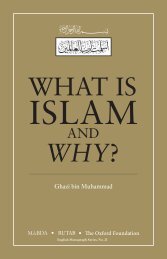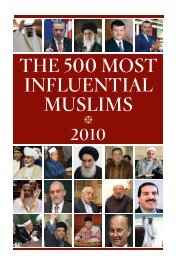body count - The Royal Islamic Strategic Studies Centre
body count - The Royal Islamic Strategic Studies Centre
body count - The Royal Islamic Strategic Studies Centre
- No tags were found...
Create successful ePaper yourself
Turn your PDF publications into a flip-book with our unique Google optimized e-Paper software.
SECTION I<br />
introduction<br />
Background<br />
In his seminal work <strong>The</strong> Clash of Civilizations and the<br />
Remaking of World Order (1996), the Harvard political<br />
scientist Samuel Huntington reinvented Arnold Toynbee’s<br />
understanding of history as driven not only by impersonal<br />
material structures—territory, capital, population, and<br />
natural resources—but equally by interpersonal ideational<br />
structures. This perception seemed supported by<br />
empirical observation, and soon filled the intellectual and<br />
political lacunae which had attained particular salience in<br />
the wake of the implosion of Soviet-backed communism.<br />
Oftentimes, the reinstatement of religion—as the single<br />
most stable ideational structure in human history—was<br />
referred to as ‘the revenge of God’, but for social scientists<br />
and historians alike it became impossible to scientifically<br />
isolate the divine variable from terrestrial imperatives in<br />
the muddled socio-political praxes of earthlings. A casual<br />
observation, nonetheless, would suggest that discursive<br />
constructions about God (in politics, a short-hand for<br />
absolute truth) have been a necessary corollary to nearly all<br />
conflictual formations, from the substate to the transstate<br />
levels. <strong>The</strong> intensity of this linkage, and its constancy, is<br />
tested in this study.<br />
3



